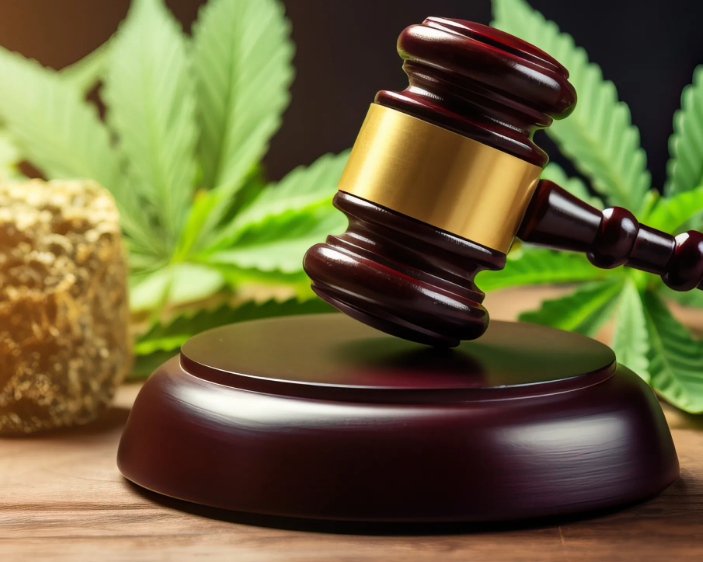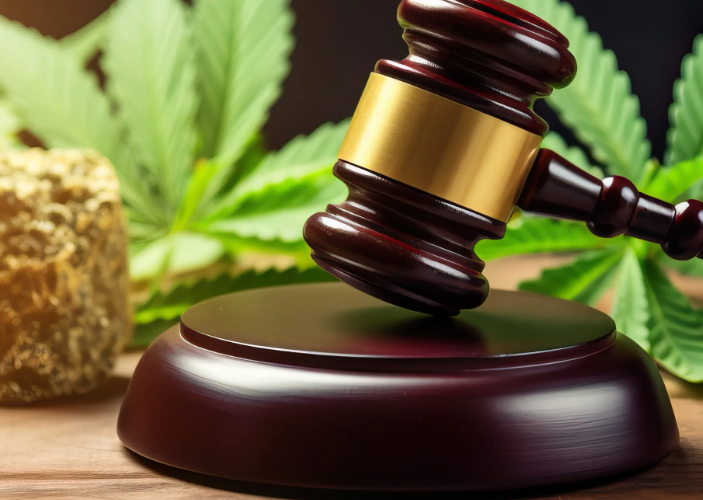A federal judge has given a green light to Florida’s marijuana legalization push, ruling that state restrictions on ballot initiatives unconstitutionally burden free speech and political participation. The decision is seen as a significant boost for activists aiming for the 2026 ballot.
Judge Strikes Down DeSantis-Backed Restrictions
On Thursday, a federal judge in the Northern District of Florida sided with the pro-legalization group Smart & Safe Florida. The court said recent legislation, signed into law by Governor Ron DeSantis in May, unfairly forced campaigners to “choose between curtailing their First Amendment rights” or face the risk of “crippling civil penalties” and invalidated petitions.
That’s strong language. It basically means the state went too far. Campaign workers collecting signatures for a constitutional amendment should not be hampered by threats of punishment. And the judge granted what was described as “complete relief” — a full block on the challenged provisions.
For advocates, this was more than a technical victory. It was a lifeline for an expensive, complicated petition drive.

Why the Law Mattered
The restrictions DeSantis signed into law were not written specifically to stop marijuana initiatives. They covered ballot measures in general. Still, the effect was the same: adding roadblocks to an already uphill process.
Supporters worried that the new rules — such as tighter scrutiny of signature collection and added financial risks — could scare off volunteers, contractors, and donors. Running a statewide campaign in Florida already requires millions of dollars and careful organisation. Extra hurdles could have made it nearly impossible.
This is why Smart & Safe Florida filed for a preliminary injunction. They argued that without court intervention, the campaign would be strangled before it really started.
And the judge agreed.
A History of Legal Battles Over Ballot Access
This isn’t the first time Florida’s cannabis reformers have clashed with state officials. In fact, the back-and-forth between citizen-led campaigns and Tallahassee has become something of a recurring saga.
-
In 2021, the Florida Supreme Court struck down a proposed legalization amendment, saying its ballot summary misled voters.
-
In 2022, activists regrouped, collecting hundreds of thousands of signatures, only to face further legal challenges.
-
By 2023, Smart & Safe Florida finally managed to qualify an initiative for judicial review. The state’s high court narrowly allowed it to move forward, setting up a future ballot fight.
Each step has been marked by obstacles, delays, and lawsuits. Thursday’s ruling adds a new chapter, one that activists say restores a measure of fairness to the process.
What’s at Stake in 2026
So, what happens next? Assuming petition drives go forward, Florida voters could face a major decision in November 2026: whether to legalize recreational marijuana.
The stakes are high. Florida already has a booming medical cannabis industry with hundreds of thousands of patients. Expanding access to adult-use could reshape the state’s economy and social policies.
According to recent polling from the University of North Florida, support for legalization hovers above 65%. That’s comfortably past the simple majority mark but shy of the 60% supermajority needed to pass constitutional amendments in the state.
This margin makes every campaign tactic critical. Messaging, turnout, and the ability to keep volunteers motivated will all play a role.
Legalisation and Economics
Beyond politics, there’s the money. Analysts predict Florida could quickly become one of the largest cannabis markets in the country if legalization passes.
Here’s a look at projected figures from industry observers:
| Year | Estimated Sales (Adult Use) | Tax Revenue Potential |
|---|---|---|
| 2027 | $2.3 Billion | $300 Million |
| 2030 | $4.1 Billion | $520 Million |
Those numbers are hard to ignore. Florida’s population, tourism industry, and existing medical framework make it a prime candidate for a fast-growing cannabis economy.
But economics won’t be the only factor. Opposition groups, often backed by conservative organizations and anti-legalization lobbyists, are expected to campaign heavily against it.
National Ripple Effects
The Florida case also resonates nationally. Other states have passed laws limiting ballot access, sometimes under the banner of “integrity” or “oversight.” Courts are increasingly being asked to weigh in.
For cannabis reform in particular, Florida looms large. If legalization passes in the Sunshine State, it would mark a turning point. Florida is the third most populous state in the U.S. and a political battleground. Success there could pressure federal lawmakers to reconsider marijuana’s status under federal law.
If it fails? It could embolden opponents elsewhere to tighten restrictions on ballot-driven reforms, not just for cannabis but for issues like abortion rights, voting access, and environmental measures.
The Road Ahead
Smart & Safe Florida now has breathing room, but the road remains long. Gathering the nearly 900,000 valid signatures required will still be an expensive and exhausting process.
Activists say they’re prepared, though. The ruling gives them confidence to invest resources without fear of having the rug pulled out from under them.
Still, even with Thursday’s victory, success is far from guaranteed. Public opinion may lean in their favour, but history shows Florida’s supermajority requirement is a tall hurdle.
And so, the campaign presses on — stronger now than it was a week ago.




